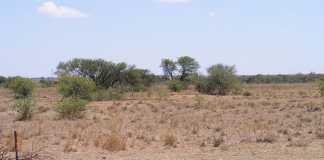According to Edna Molewa, minister of Water and Environmental Affairs, the DEA wishes to halt the issuing of rhino hunting permits to hunters from countries that don’t have the appropriate legislation to monitor whether the trophy is used for the purpose reflected on the permit. She said she was talking to Vietnam’s Ministry of Agriculture and Rural Development about the issue of permits and measures to stop abuse of the system.
Inspections
The DEA has also asked the ministry if it can conduct inspections to verify that the white rhino trophies exported from South Africa to Vietnam are still in the possession of the hunters involved, said Molewa. But Elise Daffue, founder of the anti-poaching organisation, Stop Rhino Poaching, said the government isn’t doing enough. “How difficult is it, really, to allocate additional law enforcement resources and put effective rhino protection strategies in place?” she asked.
“We are five years into the poaching epidemic and it only gets worse.” Daffue said people on the ground, rangers and investigators are working tirelessly, but they aren’t being given the resources they need from the structures higher up. But the DEA has said the first group of 75 new rangers out of the planned 150 to be placed in the Kruger National Park have completed their competency tests, security checks and medical assessments.
Molewa also said she has met with Mozambique’s tourism minister, Fernando Sumbana Jnr, to find viable solutions to the scourge of rhino poaching that saw the Kruger National Park lose 252 rhino in 2011. According to Molewa, Sumbana indicated that Mozambique is in the process of making wildlife poaching a criminal offence carrying a heavier sentence. Poaching is currently seen by Mozambican law as damage to property.












